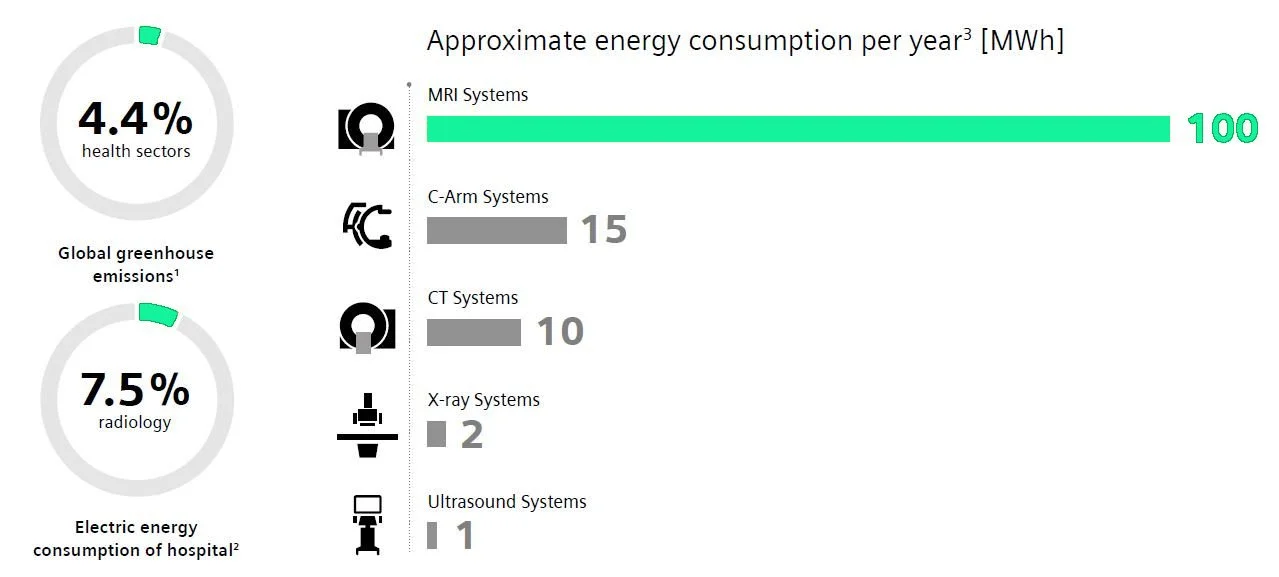
Healthcare has a significant impact on sustainability, affecting environmental, social, and economic dimensions.
The climate footprint of healthcare is estimated to be equivalent to 4.4% of global net emissions.
Medical devices are estimated to be responsible for 30% of such emissions, with radiology accounting for 7,5% of the total carbon footprint (up to 20% for university hospitals).
Sustainable healthcare practices can lead to cost savings and operational efficiency making it a vital component

Medical imaging devices can consume a lot of energy, up to a hundred kilowatthour per day (MRI) or more, thus contributing to emissions and operating costs for the user.
Knowing the profile of energy usage of each machine and the available energy saving options, can save energy. COCIR estimated up to 20% for an MRI, which corresponds to around 30MWh per year. Between 30% and 40% of energy consumption can be saved for CT using energy saving mode when appropriate.
A study by the World Health Organization (WHO) found that implementing sustainable practices in healthcare can reduce the sector's carbon footprint by up to 35%.
Research by Practice Greenhealth suggests that healthcare facilities can save up to $15 billion in energy costs by adopting sustainable practices, including the procurement of eco-friendly medical equipment.
The Healthcare Sustainability Leaders Forum reported that around 85% of healthcare executives believe that sustainability initiatives are essential for the future success of their organizations


